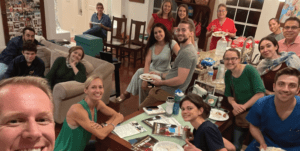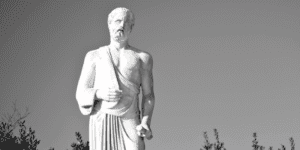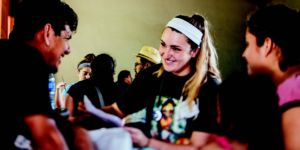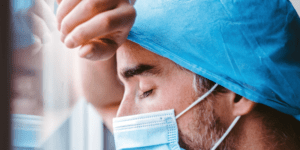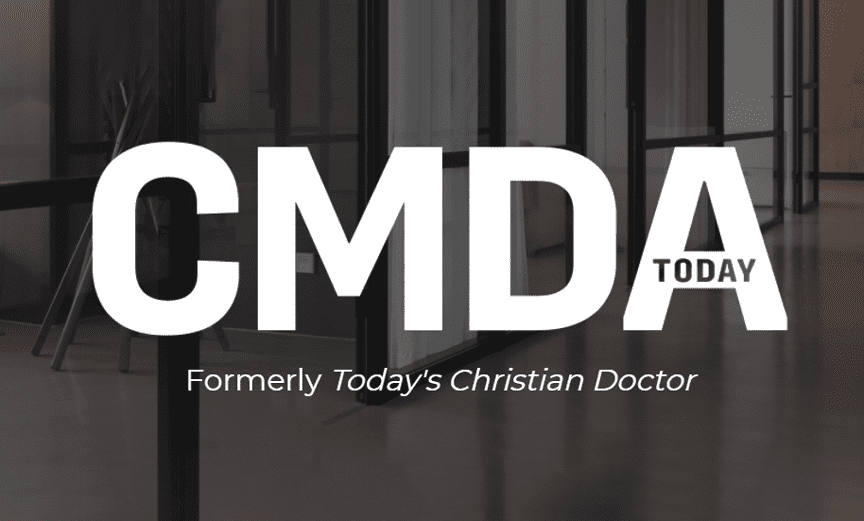
Growth Spurt
Sometimes reality is far more awe-inspiring than anything even the most imaginative of writers could dream up. Decades ago, the idea that a woman could become pregnant with her adopted child seemed like science fiction. However, reproductive medicine has long since crossed biological boundaries in ways that once seemed impossible, creating complex problems that require morally sound, technology-driven solutions. Since 2003, the Knoxville, Tennessee-based National Embryo Donation Center (NEDC) has been the national leader for one such solution: embryo donation/embryo adoption (ED/EA). The NEDC specializes in honoring life in its very earliest stages and facilitating pregnancies for women who want to carry their adopted children. And these days, the ministry is busier than ever, adding new initiatives and team members to expand the quality and scope of its life-affirming work.
by Mark Mellinger God is expanding the National Embryo Donation Center to place His tiniest image-bearers into loving families. And it wouldn’t be happening if not for one physician working through a crisis of conscience.
Sometimes reality is far more awe-inspiring than anything even the most imaginative of writers could dream up. Decades ago, the idea that a woman could become pregnant with her adopted child seemed like science fiction. However, reproductive medicine has long since crossed biological boundaries in ways that once seemed impossible, creating complex problems that require morally sound, technology-driven solutions. Since 2003, the Knoxville, Tennessee-based National Embryo Donation Center (NEDC) has been the national leader for one such solution: embryo donation/embryo adoption (ED/EA). The NEDC specializes in honoring life in its very earliest stages and facilitating pregnancies for women who want to carry their adopted children. And these days, the ministry is busier than ever, adding new initiatives and team members to expand the quality and scope of its life-affirming work.
If you’re not familiar with ED/EA, here’s a quick primer on the basics: First and most importantly, it’s a part of the solution to the modern problem of surplus embryo creation. Traditionally, physicians performing in-vitro fertilization (IVF) have created far more embryos than couples plan to use to build their families. That leaves many of those couples in the precarious position of having “extra” embryos (embryos remaining after their family building is complete). Think of it as the tiniest human lives left in limbo.
A national center dedicated to ED/EA was actually the brainchild of former CMDA CEO Dr. David Stevens, who called Knoxville reproductive endocrinologist Dr. Jeffrey Keenan in 1999 to discuss just such a possibility. A few years of teamwork and the Lord’s intervention followed. Then, in 2003, the NEDC opened as a life-affirming response to the problem of surplus embryo creation. The organization, which is now a stand-alone non-profit, accepts embryos without charge from fertility clinics all over the country. These frozen embryos are stored in Knoxville, while waiting to be “adopted” out to other couples hoping to add children to their homes. (Embryo adoption is not technically legal adoption with the exception of a few states. But since it incorporates many features of traditional adoption, the NEDC uses the term “embryo adoption” informally, similar to the way phrases like “adopt a highway” or “adopt a pet” are used. Furthermore, it is a familiar framework for patients to consider the process and procedures involved.)
With more than 1,000 births facilitated, the ministry has proven even more successful than first envisioned. The NEDC is among the first organizations those seeking to donate or adopt embryos will find in their internet searches. Its work is regularly featured by media outlets throughout the country. And the center is well-known to reproductive medicine specialists at clinics all over North America, many of whom refer both potential embryo donors and adopters to the NEDC.
Yet as much visibility as the NEDC has achieved, this year the organization embarked on an effort to publicize a lesser-known aspect of its operations: the availability of what the center categorizes as “special consideration embryos” for adoption. Special consideration embryos are those for whom testing or medical history indicates a potentially increased risk of the child having physical, emotional or intellectual problems. Some of those problems could include congenital heart defects, the potential for autism, Down syndrome or other chromosomal abnormalities.
“The NEDC has always supported the truth that every human being, even in embryonic form, is of equal value and worth,” said Dr. Keenan, who has served as NEDC President and Medical Director since the organization’s founding. “However, because not all adopting couples are equipped to deal with children with special needs, it is important to notify them of the possibility.”
Dr. Keenan went on to point out that the transfer of such embryos could often result in the births of “typical” children. The likelihood of a child being born with an abnormality varies by case.
The special consideration category also includes embryos for whom one of the donating parents has tested positive for a sexually transmissible infection like HIV, Hepatitis B or Hepatitis C. “When these embryos are transferred, there is a potential risk of the infection being passed along to the child and adoptive mother. However, this has never actually happened in the sum total of frozen embryo transfer history,” Dr. Keenan asserted. “Neither the adoptive mother nor the embryo being transferred is likely to develop an infection. Yet, because of the FDA requirements that couples be informed of the theoretical possibilities, most couples decline to receive such embryos.”
Of the NEDC’s hundreds of donor embryo profiles, less than three dozen fall into the special consideration category. That may not sound like a lot, but because they are so hard to place, the center’s leaders are concerned those embryos could remain unchosen. So, in the spring of 2020, the NEDC began an awareness push aimed at finding families with a heart for adopting special consideration embryos.
That push has consisted of three initiatives: awareness posts on the NEDC’s social media platforms, putting out the call on the organization’s website and a new 50 percent discount on donor fees (the fees reimbursing the NEDC for the shipping and care of the embryos) to those who adopt from the special consideration category. Though it’s hard to measure, NEDC leaders say there are early indications the awareness campaign is reaching those with a heart for accepting these embryos. Couples are beginning to ask about adopting from the special consideration category when they call or email.
“We would love to have a large supply of special needs donors and recipients because this gives witness to our respect for the life and dignity of all,” Dr. Keenan said, adding that the NEDC accepts all viable embryos. However, before the NEDC can accept more special consideration embryos in Knoxville, he said that much of the current supply will need to be adopted. “Traditionally, the chance of adopting out embryos with certain health problems or risks has sometimes been very small, and the NEDC has limited storage capacity. That means there are some situations in which we need to find adopters before we are able to accept the embryos at the NEDC facility,” he said.
The increased focus on these particular embryos hasn’t been the only major change at the NEDC over the last couple of years. The organization also realized a long-held dream with the addition of reproductive endocrinologist Dr. John David Gordon as its second physician in August 2019. Dr. Gordon relocated to Knoxville from the Washington, D.C. metro area, where he had practiced successfully for more than two decades. His presence allows the NEDC to perform more frozen embryo transfers and welcome more adoptive couples for initial appointments. Just how Dr. Gordon arrived in Knoxville is a story in itself.
In fact, it’s quite possible the NEDC might never have appeared on Dr. Gordon’s proverbial radar screen had it not been for a sequence of events in 2018. On Valentine’s Day 2018, Dr. Gordon’s wife Allison suffered an ankle injury that left her confined to home while convalescing. Allison, an energetic mother of four (with only her youngest still in high school), suddenly found herself laid up on the couch with a lot of time to read. The forced slowdown in activity gave Allison some rare time to reflect and to form convictions that would ultimately upend her family’s lives.
“I came home one day, and Allison said, ‘I’m going to tell you something that you really may not want to hear.’ And I said, ‘Well, what is it you want to say to me?’ I had no idea what she was going to say,” Dr. Gordon remembered. “She said, ‘I am just concerned that the way you’re practicing is sort of generating blood money and perhaps the things that we own have been paid for with blood money, and I’m not sure this is a right path for you to be on professionally.'”
To say Dr. Gordon was in shock would be putting it mildly. After all, he’d pursued a career in reproductive medicine because it offered the opportunity to build families and provide happy outcomes for struggling couples. He was skilled at the work and enjoyed it. In addition to all of that, he was a practicing physician and also the co-owner of a vibrant practice that had provided a good quality of life for his family. Now his wife was questioning the very nature of his professional identity. He had to know her specific concerns.
While healing from the ankle injury, she explained to him, she’d done a lot of reading about some of the ethical problems inherent in reproductive medicine. The birth of NEDC baby Emma Gibson following the transfer of an embryo that had been frozen for 24 years and the loss of thousands of embryos from cryopreservation system failures at clinics in Ohio and California placed the issue in stark relief.
“One of the bigger things that bothered me was the fact that fertility clinics were creating all these extra embryos and they were all sitting there languishing, in my opinion, in a freezer,” Allison recalled. “I thought, in God’s economy, they’re all lives just as valuable in God’s eyes as my life or your life or John’s life. And I thought there’s so much about fertility where they’ve taken the sovereignty of God out of it. Sometimes the embryo that gets put back (into a mother’s womb during IVF) is just the one that happens to look the most advanced at that particular stage or the one that’s in the dish that is closest to the front of the incubator. Life and the creation of life should not be based on convenience in man’s eyes. So that bothered me a lot that all those embryos were languishing and people didn’t know what to do with them.”
Dr. Gordon listened carefully as his wife passionately unpacked her deeply-felt concerns. “Each one of [the embryos] is a unique human being, and they’re not being given an opportunity,'” Allison told him. Knowing his wife-an engineer with a PhD-to be a bright, thoughtful woman of sincere faith, Dr. Gordon couldn’t just disregard what she was articulating. He had to wrestle with these and other related questions himself, and he wanted to see if there was another Christian whose brain he could pick for advice.
Truth be told, Dr. Gordon had been feeling more and more dissatisfied with how he was practicing. Couples without infertility were using IVF to create and genetically screen embryos to allow for the selection of embryos by gender. The use of donor egg IVF was pushing the limits of reproduction, allowing women in their 50s to conceive without much regard for what this decision might mean for their children or for the large number of surplus embryos created that would never be allowed the chance at life outside of a cryopreservation tank filled with liquid nitrogen. These and a myriad of other challenging clinical situations made him question whether or not he could continue to practice in the field of reproductive medicine at all.
With that impetus, Dr. Gordon searched the internet looking for Christian perspectives on IVF. He found his way to the CMDA website, which specifically referenced the ethical dilemmas so troubling to him and his wife. From the site, he learned about Dr. Keenan in Knoxville. So he picked up the phone, made a call and left a voicemail. Intrigued by the message, Dr. Keenan returned the call the same day.
Not long before, Dr. Keenan had sent out an ad, flyer and email nationwide seeking a second physician for the NEDC, with little meaningful response. He asked if Dr. Gordon had seen any of those. He hadn’t. As they discussed the ethically charged issues confronting reproductive medicine specialists, Dr. Keenan said, “Well you should come here to Knoxville and join me and just work here,” Dr. Gordon recalled. “I said I’m the co-owner of a successful practice here and I really just called to talk. I’m not looking for a job change. He said, ‘Well, you need to think about it. Nothing happens by coincidence. There is a reason that you were led to call me today.'”
Later that same evening, Dr. Gordon went over the details of the conversation with Allison. She immediately responded by saying they should take Dr. Keenan up on his offer and move to Knoxville. “I’m the type of person who hates changing toothpaste brands, so stepping out into the unknown after spending two decades building a thriving practice in the D.C. area was almost too much for me to process,” recounted Dr. Gordon. “But in my heart, I knew from the very first night Allison and I discussed the move that it was going to happen. I had prayed for God to show me a new career path, but now that it was right in front of me, I was paralyzed.”
For the next year, Dr. Gordon and Dr. Keenan discussed various options and the timing of a potential move. “Over and over again, there were signs that moving to Knoxville was the right choice. God’s fingerprints were all over this move,” said Dr. Gordon. In April 2019, it became clear that a change was needed, and so what had been a two- to three- year plan for a move to Knoxville suddenly became a two- to three-month plan. Now, more than a year after their arrival, it’s a move they don’t regret.
“To take care of these donated embryos and to find loving families for them, I am so excited about being a part of it,” Allison said. “After being where we were and John practicing the way that he practiced there, we’re just ready for this. It seems redemptive, honestly.”
Dr. Gordon concurred, “For the first 23 years of my career I was part of the problem. We were and still are creating too many extra embryos in our efforts to help couples conceive. We have failed to adequately discuss these issues with our patients. Many patients, including those without faith or a belief in God, soon realize that discarding their extra embryos is an emotionally devastating decision and one that sometimes leads them to simply abandon their embryos rather than face these difficult choices.”
Now that he is settled in Knoxville, Dr. Gordon feels more at peace with his career than he has in several years. “Prior to leaving my former practice, I was told by the practice attorney and our accountant that my faith was incompatible with the goals of the practice,” he said. “I am so glad that I am in a place now where that is no longer the case.”
NEDC leaders say the entire staff shares Dr. Gordon’s joy in being able to give life and hope to families, all while caring for the smallest of God’s image-bearers. The Lord is authoring a wonderful, unpredictable story in Knoxville that’s having an impact all across North America. Going forward, NEDC leaders say their trust will remain firmly in the Master Storyteller, knowing it’s simply their job to turn the pages as He writes the next chapters.
Jeffrey Keenan, MD
Dr. Jeffrey Keenan, a highly respected infertility and reproductive medicine specialist, leads the NEDC team. He is the center’s president and medical director and a fertility specialist with Southeastern Fertility in Knoxville, Tennessee. He is board certified in obstetrics and gynecology, as well as reproductive endocrinology and infertility. Dr. Keenan is also a professor at the University of Tennessee (UT) Graduate School of Medicine and is director of UT’s Division of Reproductive Endocrinology and Infertility. In practice since 1990, Dr. Keenan has performed innumerable fertility procedures with outstanding success rates. John Gordon, MD
Dr. John David Gordon is an NEDC physician and co-director of Southeastern Fertility. He was born and raised in suburban Boston where he attended Milton Academy. He graduated from Princeton University with a degree in biology, and he attended medical school at Duke University. Dr. Gordon was an intern in obstetrics and gynecology at the University of Texas Health Sciences Center in Houston, Texas. He then completed his residency training in obstetrics and gynecology at Stanford University Medical Center and his fellowship in reproductive endocrinology and infertility at the University of California San Francisco. Dr. Gordon is board certified in obstetrics and gynecology and subspecialty board certified in reproductive endocrinology and infertility. In 1999, he became the Co-Director at Dominion Fertility in Arlington, Virginia. Over the next 20 years, Dr. Gordon was consistently voted as one of Washington’s Top Doctors in Washingtonian, Northern Virginia and Arlington magazines. He is the author of many scientific articles and several books, but he is best known to health professionals as Editor-in-Chief of Obstetrics, Gynecology, and Infertility.
About the National Embryo Donation Center
Since 2003, the National Embryo Donation Center (NEDC) has been the country’s leading comprehensive non-profit embryo donation program. Its mission is to protect the lives and dignity of human embryos. They do that by promoting, facilitating and educating about embryo donation and embryo adoption (ED/EA). They are also the only clinic-based organization that works with families of all races, faiths and ethnic backgrounds.
When couples go through in vitro fertilization (IVF), the remaining embryos are often frozen and stored for later use. An estimated 1,000,000 human embryos are stored in the U.S. right now. The NEDC handles the medical, legal and social aspects of ED/EA. When someone donates embryos to the NEDC, they become the interim caregiver and store them at no charge to donors. From there, their team works hard to match the right embryos with the perfect family.
For more information about the NEDC, visit www.embryodonation.org.
Mark Mellinger serves the National Embryo Donation Center (NEDC) as marketing and development director. In that role, he handles all marketing and public relations functions for the NEDC, and he is also in charge of helping secure the capacity to develop the organization. His background includes almost three decades in broadcast journalism, mostly as a TV news anchor and interviewer. Mark has also written for outlets like The Washington Post and The Gospel Coalition.
This Feature Story Appears in:
Other Recent CMDA Today Articles:
- « Previous
- 1
- …
- 3
- 4
- 5

